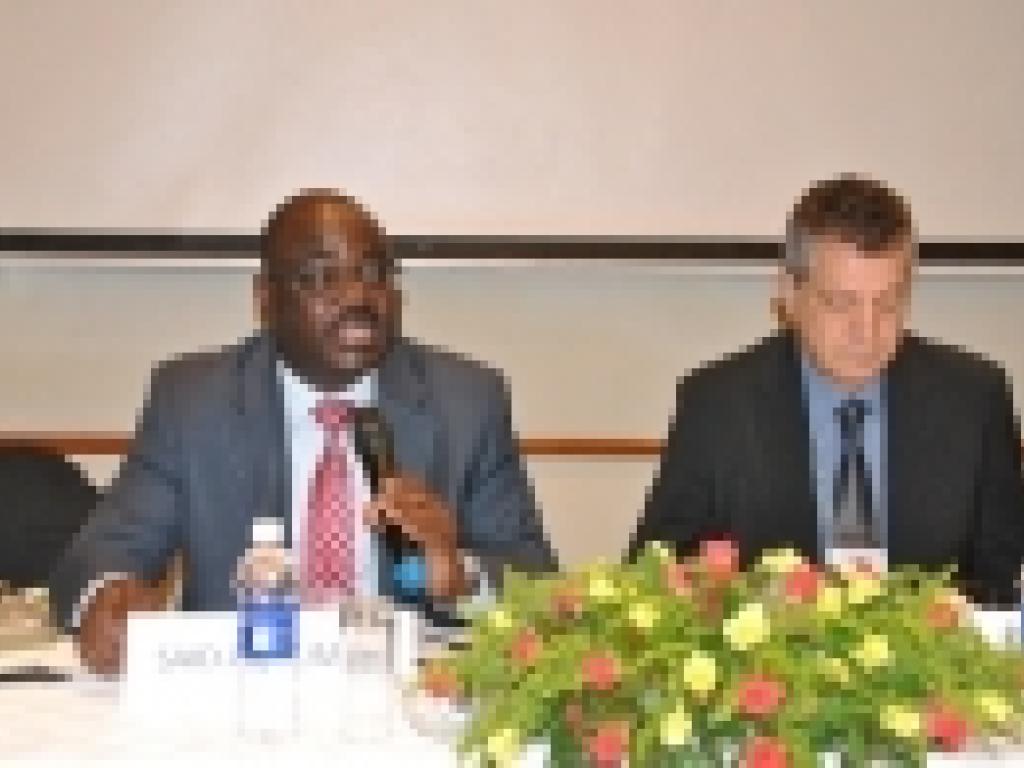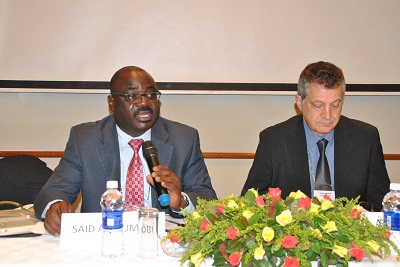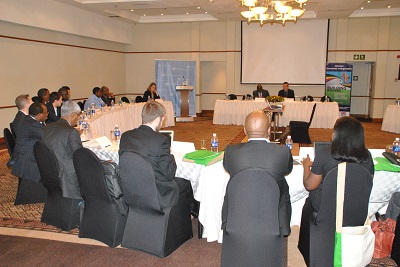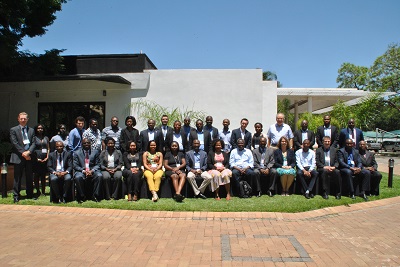Building Bridges hosts regional workshop in Lusaka


Trade initiatives within Africa have the potential to strengthen industrialisation across the continent. However, according to the United Nations, Africa has the lowest global shares of intra-regional trade when compared with South America and Asia. This is despite longstanding efforts by African regional bodies that have been working for economic integration.
Examining the evidence for African economic integration was the focus of a recent workshop hosted by Building Bridges, in partnership with the United Nations Economic Commission for Africa (UNECA) – Southern Africa. The workshop theme was “Accounting for Progress in Regional Integration: Evidence and Accountability”, and was held in Lusaka 24th November 2015.
The event brought together key intellectuals working on regional integration as well as alumni from the Building Bridges young African leaders programme.
“East Africa has clearly been the most successful region in terms of integration efforts,” said Dr Marianne Camerer, Building Bridges Programme Director. “This has largely been due to leadership and a coalescence of economic interests among countries in the region to enlarge their domestic markets through freedom of movement, goods and services.”
GSDPP Senior Fellow Prof Thandika Mkandawire chaired the opening session of the one-day meeting. Other key speakers included Prof Said Adejumobi from UNECA’s Southern African headquarters in Lusaka as well as Caesar Cheelo, the Senior Research Fellow at the Zambia Institute for Policy Analysis and Research (ZIPAR). Other speakers included: Sean Woolfrey, from the European Centre for Development Policy Management (ECPDM); academics Maude Dikobe, Amb Faizel Ismail and Joao Caholo, Former Deputy Executive Secretary at the Southern African Development Community (SADC).
The workshop also looked at how to accommodate institutional complexity and regional accountability into models of regional integration. The role of civil society in promoting accountability across southern Africa was also the focus of a session facilitated by Makhosazana Zwane-Siguga, of Media 24 in South Africa, with panellists Prof Vusi Gumede, of the Thabo Mbeki Africa Leadership Institute, UNISA; Dr Fola Adeleke, from the University of Witwatersrand; and Phumeza Mlungwana of the Social Justice Coalition.
“NGOs and civil society groups have a key role in holding their national governments accountable to commitments made at regional level,” said Dr Camerer. “Civic actors also have a responsibility to educate and communicate complex policy documents discussed at inter-governmental forums such as the AU, to their constituencies.”


